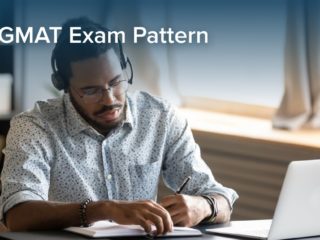| Getting your Trinity Audio player ready... |
Last Updated on July 5, 2024
Thinking about taking the GMAT Focus Edition? Like many contemplating which standardized test to take for their graduate business school applications, you’re probably wondering what the GMAT Focus Edition exam eligibility criteria are.
In this article, we’ll answer the top 7 most common questions about GMAT Focus eligibility. You’ll get all the info you need to know whether you’re eligible to take the exam.
The good news is that GMAT Focus eligibility criteria are no stricter than eligibility criteria for the standard GMAT — which is to say, not very strict!
Here are the topics we’ll cover:
- Examination Frequency: What You Need to Know
- The Test Registration Fee
- GMAT Focus Eligibility Criteria
- Does the GMAT Focus Edition Have Citizenship Requirements?
- Does the GMAT Focus Edition Have an Age Requirement?
- Does the GMAT Focus Edition Have an Education Requirement?
- Does the GMAT Focus Edition Have a Work Requirement?
- Does the GMAT Focus Edition Have a Language Requirement?
- Does Test Registration Require No Criminal Record?
- Do I Have to Use GMAT Focus Official Prep?
- GMAT Focus Eligibility: Key Takeaways
- What’s Next?
To start, let’s discuss how test retakes can affect your GMAT Focus eligibility.
Examination Frequency: What You Need to Know
The number of GMAT Focus test retakes you’re allowed is not unlimited, and there are restrictions on your examination frequency. So, the first things you need to think about when considering your GMAT Focus eligibility are:
- how many times you’ve taken the GMAT
- when the last time you took a GMAT was.
Test-takers can sit for a GMAT exam once every 16 calendar days, unless they are switching from an in-person test to an online one, or vice versa. In that case, there is no waiting period between exams.
Additionally, you cannot take the GMAT more than 5 times in a continuous 12-month period or more than a total of 8 times in your lifetime. These rules apply regardless of whether you’re taking the GMAT Focus in person, online, or both.
KEY FACT:
You cannot take the GMAT more than 5 times in a continuous 12-month period or more than a total of 8 times in your lifetime.
Now, let’s talk about the next “baseline” requirement for being eligible to take the GMAT Focus: the registration fee.
The Test Registration Fee
As of this writing, the fees to register for the GMAT Focus Edition in the U.S. are as follows:
- $275 for an in-person exam
- $300 for an online exam.
There are additional fees for rescheduling or canceling an exam. Registration fees vary by country, so be sure to check GMAC’s location-specific pricing page to confirm the cost of your test.
In general, GMAC accepts payments made with a credit card, debit card, personal check, money order, or cashier’s check. If you’re in India, you may need to contact your bank for assistance to pay with a debit card. This payment method page has more information.
You’ll need accepted, valid identification to complete your test registration. (Ex. a government-issued driver’s license or passport.) You can read more about the identification requirements here.
One bit of good news about the GMAT Focus registration fee. If the fee is steep for you, you may qualify for a GMAT voucher or fee waiver. Furthermore, if you already have a voucher or waiver for the standard GMAT but would like to use it for the GMAT Focus Edition instead, you can!
KEY FACT:
You can use a voucher or fee waiver procured for the standard GMAT exam for the GMAT Focus Edition instead.
So, we’ve covered the basics of GMAT Focus Edition exam eligibility. Now let’s answer the 7 most common questions we hear about eligibility criteria for the exam.
GMAT Focus Eligibility Criteria
Questions about GMAT Focus exam eligibility tend to revolve around the following criteria:
- location/citizenship
- minimum age
- educational degrees
- professional work experience
- English proficiency
- criminal history
- the use of official test preparation materials
So, let’s address each of these, starting with location/citizenship.
Does the GMAT Focus Edition Have Citizenship Requirements?
Residents of any country can take the Focus Edition. However, the test is not administered in all countries. So, if you’d like to take the GMAT Focus in person, check mba.com to make sure there is a test center where you are located.
If there is no test center in your country, you can take the in-person GMAT Focus in another country. Alternatively, you can take the GMAT Focus online. Note that online exams are not currently available in Mainland China, Cuba, Iran, Syria, Sudan, or North Korea.
KEY FACT:
Residents of any country can take the GMAT Focus Edition.
So, in short, there are no citizenship requirements to be eligible to take the GMAT Focus exam. However, there may be some restrictions on test availability depending on your location.
Does the GMAT Focus Edition Have an Age Requirement?
The minimum age to take the GMAT Focus is 13 years old. Since most GMAT test-takers sit for the exam as part of the MBA admission process, the age requirement is nothing to worry about.
If you are younger than 18, you need written permission from a parent or guardian to take the GMAT Focus. You’ll need to download the Parental Consent / Authorization Form from mba.com for your parent or guardian to sign. You’ll then need to send that form to the email listed on that page.
Additionally, test-takers under age 18 must take the exam at a test center.
If you’re 18 or over, you can take the exam either at a test center or online, depending on availability in your location. There is no upper age limit on who can take the GMAT Focus.
KEY FACT:
Parental consent (for test-takers under 18) is required if you are not of legal age and want to take the GMAT Focus Edition.
Does the GMAT Focus Edition Have an Education Requirement?
If you’re a younger test-taker, or you haven’t followed the “traditional” path in your education, you may be wondering, can I take the GMAT Focus without a degree? Well, you’ll be happy to hear that the answer is yes! There are no degree requirements for the GMAT Focus Edition.
So, you don’t need an undergraduate degree, high school diploma, GED, etc., to be eligible to take the GMAT Focus. This makes sense, since the minimum age to be eligible to take the GMAT Focus is 13.
Now, all that said, if you’re planning to take the GMAT Focus for MBA programs, in most cases, admissions committees will want you to have a bachelor’s degree from an accredited institution. So, while there are no education requirements to be eligible to take the GMAT Focus, you’ll probably need to meet certain education requirements to be competitive at graduate business schools.
KEY FACT:
You do not need an undergraduate degree, high school diploma, GED, or other educational attainment to be eligible to take the GMAT Focus.
Does the GMAT Focus Edition Have a Work Requirement?
Just as there is no education requirement to be eligible to take the GMAT Focus, there is no work requirement.
But again, one of the most important aspects of MBA candidacy may be professional work experience (for some MBA programs). Many MBA programs, particularly top programs, consider professional work experience highly relevant. Applications for business schools may be looked upon as much more attractive if they showcase at least a couple of years of real-world business experience.
Now, you could of course take the GMAT Focus before you gain professional work experience. For example, you could take the test while you are a senior in college. Just make sure that you don’t take the test so early that the GMAT score validity window will close before you apply to schools.
KEY FACT:
There is no professional work experience requirement to be eligible to take the GMAT Focus.
Does the GMAT Focus Edition Have a Language Requirement?
Technically, there is no English proficiency requirement to be eligible to take the GMAT Focus. So, you do not have to submit any language proficiency test scores or have attended an English-language school, and so on, in order to register for the exam.
That said, the GMAT Focus is written in formal English. It is not offered in any other languages, regardless of where you are in the world.
Furthermore, the Verbal section of the GMAT Focus, which accounts for one-third of your GMAT Focus total score, consists of Critical Reasoning and Reading Comprehension questions that require you to read and analyze passages in English. In the case of RC questions, those passages can be several paragraphs long.
Additionally, the Data Insights section features passages of text and incorporates some Verbal concepts. Even in the Quant section, you’ll encounter word problems that you may have trouble comprehending if you’re not comfortable with the English language.
So, while you certainly don’t need to be Shakespeare to sit for the GMAT Focus, you will need a fairly high level of English proficiency in order to perform well. That said, MANY nonnative English speakers take the GMAT and earn top scores. So, don’t be discouraged if English isn’t your first language! You can still study and perform well on the GMAT Focus.
KEY FACT:
You do not need to demonstrate English proficiency to register for the GMAT Focus. However, the exam is offered in English only, regardless of where you are in the world.
Does Test Registration Require No Criminal Record?
You will not be asked about your criminal history when you register for the GMAT Focus Edition. Furthermore, GMAC does not perform background checks on test registrants.
So, having a criminal record will not bar you from taking the GMAT Focus, nor will you need to disclose your criminal record to the testing company.
KEY FACT:
Having a criminal record does not bar you from taking the GMAT Focus, nor do you need to disclose your criminal record to the testing company.
Do I Have to Use GMAT Focus Official Prep?
As you may know, you can obtain GMAT Focus official prep from mba.com, GMAC’s website. Those materials include the GMAT Focus Official Guide and 6 full-length practice tests (2 free, 4 paid).
Provided you have a comprehensive study resource for your GMAT Focus preparation, it’s not necessary to purchase the Official Guide. Moreover, we do not recommend studying for the GMAT Focus using only the Official Guide. The Official Guide provides a large number of practice questions but will not provide the guidance, structure, and insight that a prep course designed by expert GMAT teachers can.
It’s very easy to fall into the trap of completing hundreds of OG practice questions without building the necessary foundation of knowledge first or having any real organization to your studying. That method of GMAT prep proves ineffective for the vast majority of test-takers.
If you use an online self-study course such as the TTP course, you’ll have the benefit not only of structure and guidance. You’ll also get invaluable tools to make your studying more efficient, such as detailed performance analytics and error tracking. A book such as the Official Guide cannot provide these tools.
All that said, many GMAT students supplement their main study resource with the OG for extra practice. Furthermore, we do recommend eventually taking all 6 of the full-length practice tests that GMAC provides. (For advice on taking full-length practice tests, check out this guide to incorporating practice tests into your GMAT prep.)
TTP PRO TIP:
Using the Official Guide as your only GMAT Focus prep resource is not a wise strategy.
GMAT Focus Eligibility: Key Takeaways
Many mid-tier and leading business schools either require or encourage applicants to submit test scores. And even for test-optional programs, many applicants choose to submit impressive test scores in order to stand out in the MBA admission process.
Fortunately for MBA hopefuls, GMAT Focus exam eligibility criteria are relatively minimal and lenient. As long as you meet the minimum age requirement, can pay the registration fee, and can access either an in-person or online test in your area, you shouldn’t be shut out from taking the GMAT Focus exam.
Of course, the exception would be if you’ve already reached your 12-month or lifetime limit on GMAT attempts. However, if you are strategic in scheduling test retakes, you won’t have to worry about reaching those limits.
What’s Next?
Check out our guide to Focus Edition scores to learn about the new scoring system on the GMAT Focus, including the new score scales, changes to the computer algorithm and the official score report, and more.
Then, read our comprehensive guide to the GMAT Focus exam to learn all about changes to the structure and question types on the Focus Edition, including what’s happening with Sentence Correction and Data Sufficiency.



